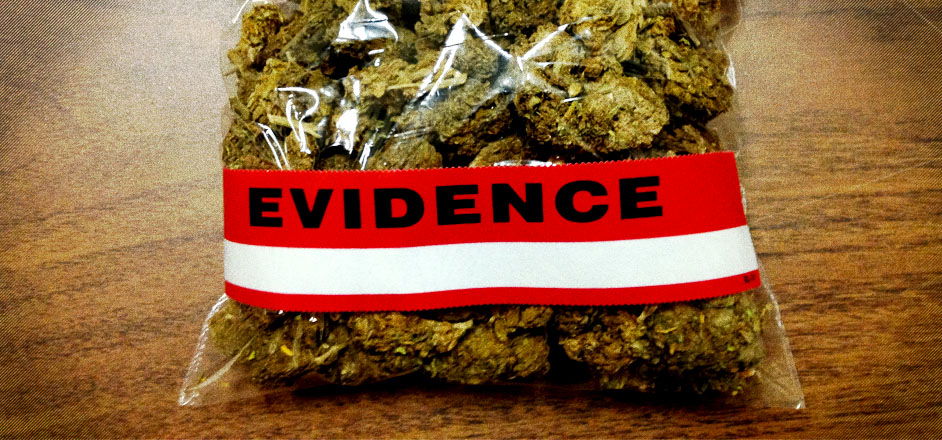When voters took to the polls in 2012 to make the devil’s weed legal in Colorado, the last thing they expected was that four years later, the Denver Police Department would literally be overflowing with confiscated marijuana.
With the legalization of marijuana came an increase in the amount of people who have failed or neglected to abide by the law forcing the DPD to confiscate record amounts of marijuana.
“Prior to the legalization with Amendment 64, we received small quantities of marijuana, maybe a couple ounces or a few pounds,” said Lt. Cliff Carney, who manages the evidence and property section for the department told CBS News. “After 64, we’re seeing huge seizures the come in. We’ll get sometimes 300 to 400 boxes of marijuana at one time on one seizure.”
As any renter or homeowner can attest to, finding room for 300 to 400 boxes isn’t fucking easy. Currently, the two rooms at the station normally reserved for storing and processing the confiscated plants are filling faster than they’re emptying causing quite the predicament. It takes about two weeks for the court to approve the disposal of the illegal plants.
Selfishly ignoring the public’s calls to just roll all of it into one large joint and smoke it, the department has instead asked the city for $125,000 to expand the evidence rooms.
Why police are still confiscating marijuana although it's legal might baffle and anger the stoner masses but there is a large portion of the population who take a mile when you give them an inch.
“Because it is now legal in certain quantities, people nowadays believe they can exceed those quantities and there’d be no prosecution, that it’s not criminal,” he said. “We used to see 15 to 20 plants at a time being seized at a small grow, now we’ll see it in the hundreds, even thousands at warehouses.”
So what actually happens to the confiscated marijuana plants sitting on the office shelves for weeks? They grow moss and die. Turns out, the shelf life for confiscated marijuana plants is one to two weeks.




Leave a Reply
You must be logged in to post a comment.